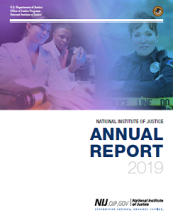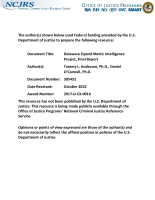Understanding the spatial distribution of crime based on its related variables using geospatial discriminative patterns
Journal
Computers, Environment and Urban Systems
Date Published
2013
Agencies
NIJ-Sponsored
Publication Type
Research (Applied/Empirical)




